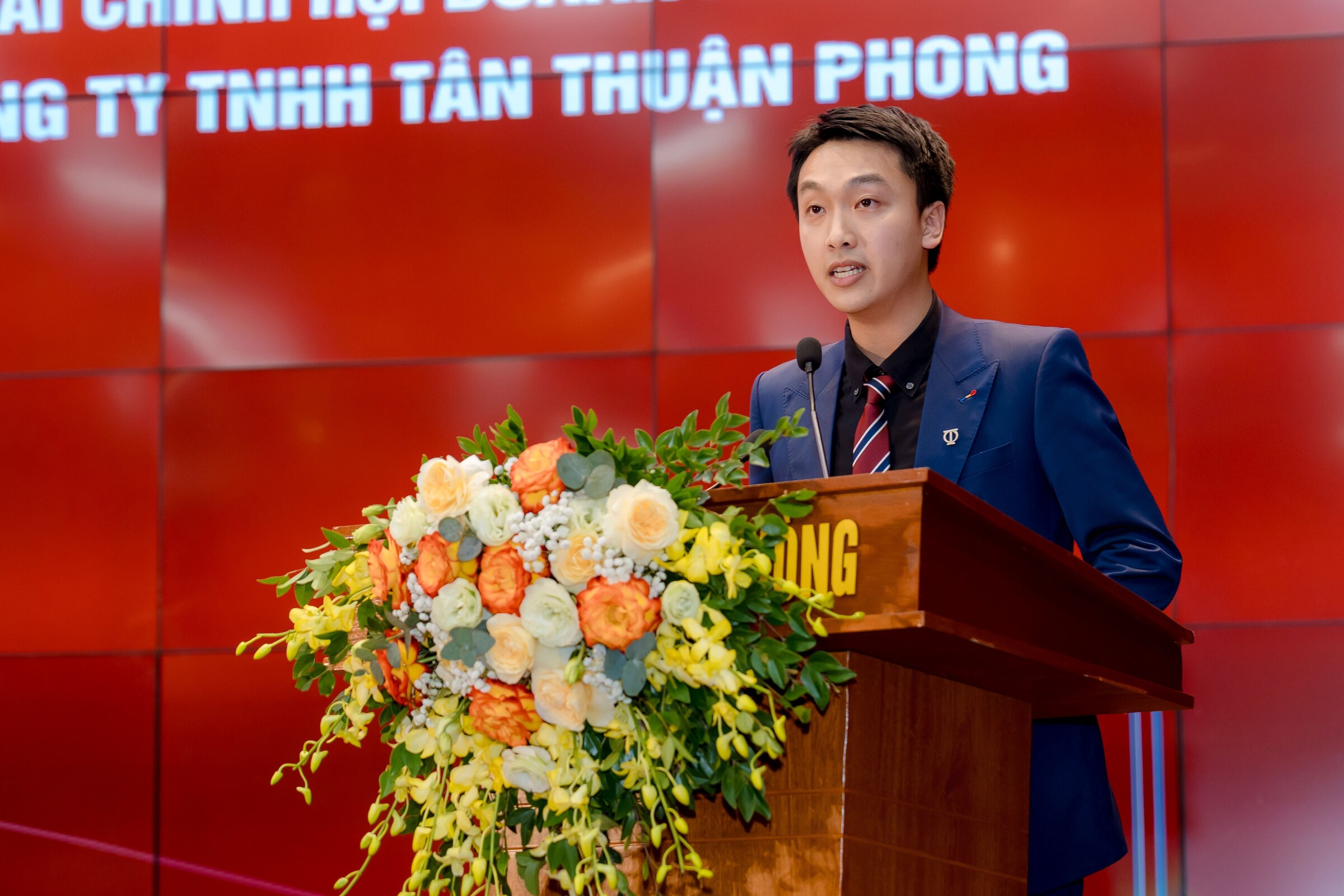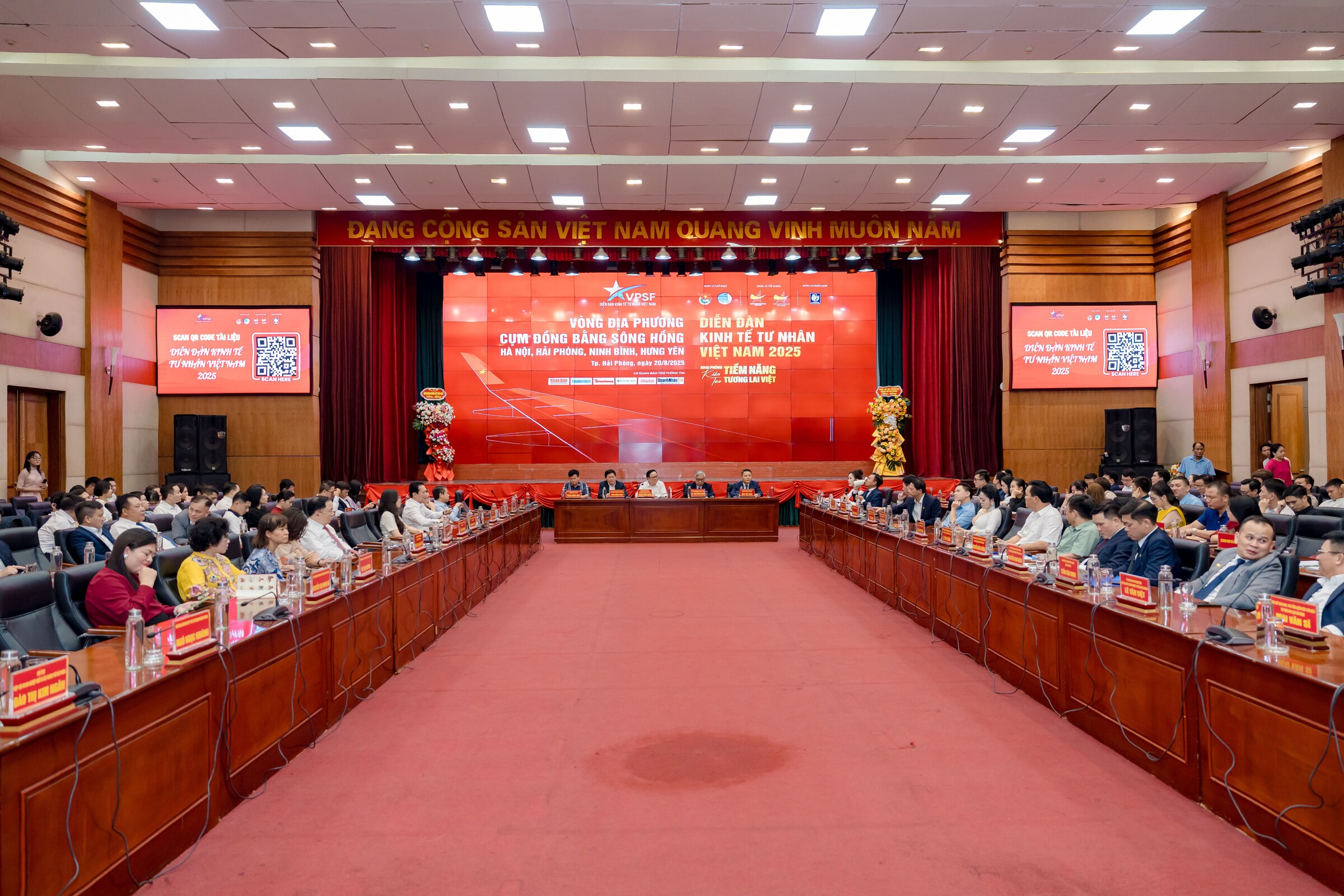The 2025 Vietnam Private Sector Forum (VPSF 2025), the local round for the Red River Delta region, was held in Hai Phong on the afternoon of 20/8. Led by the Vietnam Young Entrepreneurs Association, VPSF 2025 serves as a platform for dialogue, transforming feedback from the business community into policy recommendations for the government, the prime minister, ministries, and local authorities.
Bui Duc Huy, director of Tan Thuan Phong Co., Ltd. (Hai Phong City), was among the 200 young delegates who participated in VPSF 2025 and openly shared his insightful proposals.
 |
Bui Duc Huy, Standing Member of the Hai Phong Young Entrepreneurs Association. Photo: Le Tan |
Bui Duc Huy, Standing Member of the Hai Phong Young Entrepreneurs Association. Photo: Le Tan
Huy acknowledged that despite increasing legal clarity, inconsistent application of laws across provinces creates confusion. He proposed that the government issue a "Legal Handbook for Small Businesses" with standardized application nationwide, along with publishing a comparison of reform progress across localities to foster healthy competition.
He emphasized that family businesses are the "special cells of the economy", comprising over 70% of private enterprises, but they grapple with challenges such as limited capital, a lack of modern management, and a reluctance to expand or embrace transparency.
Huy suggested that the government should offer tax incentives for the first two years after family businesses successfully transition into companies and facilitate access to credit. For businesses, he recommended developing 5-year growth plans, professionalizing management, and investing in training the next generation of leaders.
Huy believes the quartet of Resolutions (57, 59, 66, and 68) are the "four wheels to drive them further, faster, and more sustainably." "If businesses dare to be transparent, dare to innovate, and dare to think big, Vietnam will have its own 'Samsung' and 'Gucci'," Huy stated.
Meanwhile, Nguyen Duc Cuong, chairman of the Board of Directors of 68 Group Joint Stock Company (Ninh Binh), proposed a progressive shift in management thinking. He stressed moving from a "management-friendly regime" to a "wealth-creation-friendly regime". This entails the government only prohibiting explicitly listed activities and replacing preemptive control with post-audit mechanisms for common industries. According to Cuong, this approach will reduce compliance costs, unleash creativity, and encourage new business models.
A clear distinction between "fraud and misappropriation" and "business errors or risks" is necessary. Cuong recommended limiting the criminalization of procedural economic violations to reassure businesses. For effective implementation, he proposed establishing specialized economic courts to expedite dispute resolution and protect businesses' property rights.
Nguyen Nhu Kien, general director of Lam Son Invest Joint Stock Company (Hung Yen), pointed out that logistics costs in Vietnam account for 16-20% of product costs, significantly higher than the ASEAN average of 10-12%. This issue diminishes the competitiveness of businesses in Hung Yen and the entire region. Specifically, businesses rely on the ports of Hai Phong and Cai Lan, adding 200-300 USD per container to transportation costs.
As a solution, he proposed establishing an inter-regional logistics center in Hung Yen, connected to the Free Economic Zone (FEZ) and expressways. More importantly, he urged the government to implement a mechanism for logistics connectivity in the northern region, offering incentives for capital, land, and taxes. He believes that with major infrastructure projects like the coastal road and the 200,000-ton international seaport, Hung Yen will become the gateway to the world for northern Vietnam.
 |
The 2025 Vietnam Private Sector Forum, local round for the Red River Delta region, was held in Hai Phong on the afternoon of 20/8. Photo: Le Tan |
The 2025 Vietnam Private Sector Forum, local round for the Red River Delta region, was held in Hai Phong on the afternoon of 20/8. Photo: Le Tan
Regarding the agricultural economy, Nguyen Nhu Kien asserted that developing high-tech agriculture, deep processing, expanding exports, and building local brands linked to traceability and international standards are two vital strategies. He proposed that the government subsidize 50% of the investment costs for smart agriculture technology and support the initial certification assessment costs for raw material areas meeting international standards like GlobalGAP and Organic EU.
He emphasized that branding is key to agricultural competitiveness. He recommended implementing a traceability system using blockchain technology or QR codes to ensure transparency in the production process and encourage businesses to pursue international certifications.
According to Kien, this will not only help Vietnamese agricultural products penetrate demanding markets but also create an image of green agriculture. He expressed confidence that with a pioneering spirit and innovation, the young business community will help Vietnamese agricultural products build a sustainable competitive advantage in the international market.
The organizers stated that the forum's feedback will be analyzed, researched, and compiled into a White Paper on the private economy and a joint declaration to be submitted to the government in September.
Le Tan












